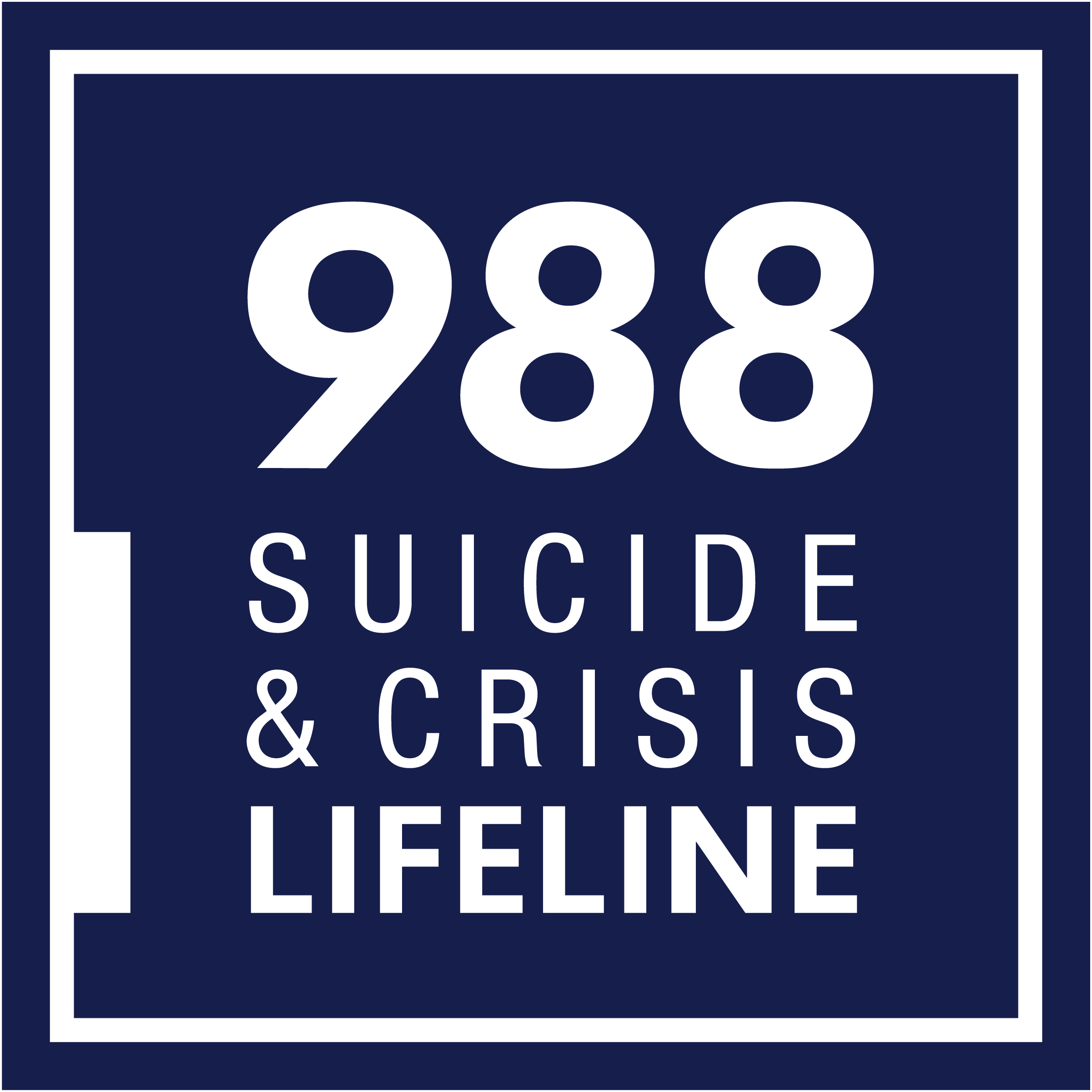Did you know that…
Depression in the United States…
- Affects over 18 million adults (one in ten) in any given year.
- Is the leading cause of disability for ages 15-44.
Depression is the most common mental health issue but causes people to feel the most alone.
Depression causes feelings of sadness and/or a loss of interest in activities you once enjoyed. It can lead to a variety of emotional and physical problems and can decrease your ability to function at work and at home.

Depression symptoms can vary from mild to severe and can include:
- Feeling sad or having a depressed mood
- Loss of interest or pleasure in activities once enjoyed
- Changes in appetite — weight loss or gain unrelated to dieting
- Trouble sleeping or sleeping too much
- Loss of energy or increased fatigue
- Increase in purposeless physical activity (e.g., inability to sit still, pacing, handwringing) or slowed movements or speech (these actions must be severe enough to be observable by others)
- Feeling worthless or guilty
- Difficulty thinking, concentrating, or making decisions
- Thoughts of death or suicide
Symptoms must last at least two weeks and must represent a change in your previous level of functioning for a diagnosis of depression.
Depression Is Different From Sadness or Grief/Bereavement
The death of a loved one, loss of a job, or the ending of a relationship are difficult experiences for a person to endure. It is normal for feelings of sadness or grief to develop in response to such situations. Those experiencing loss often might describe themselves as being “depressed.”
But being sad is not the same as having depression. The grieving process is natural and unique to each individual and shares some of the same features of depression. Both grief and depression may involve intense sadness and withdrawal from usual activities. They are also different in important ways:
- In grief, painful feelings come in waves, often intermixed with positive memories of the deceased. In major depression, mood and/or interest (pleasure) are decreased for most of two weeks.
- In grief, self-esteem is usually maintained. In major depression, feelings of worthlessness and self-loathing are common.
- In grief, thoughts of death may surface when thinking of or fantasizing about “joining” the deceased loved one. In major depression, thoughts are focused on ending one’s life due to feeling worthless or undeserving of living or being unable to cope with the pain of depression.